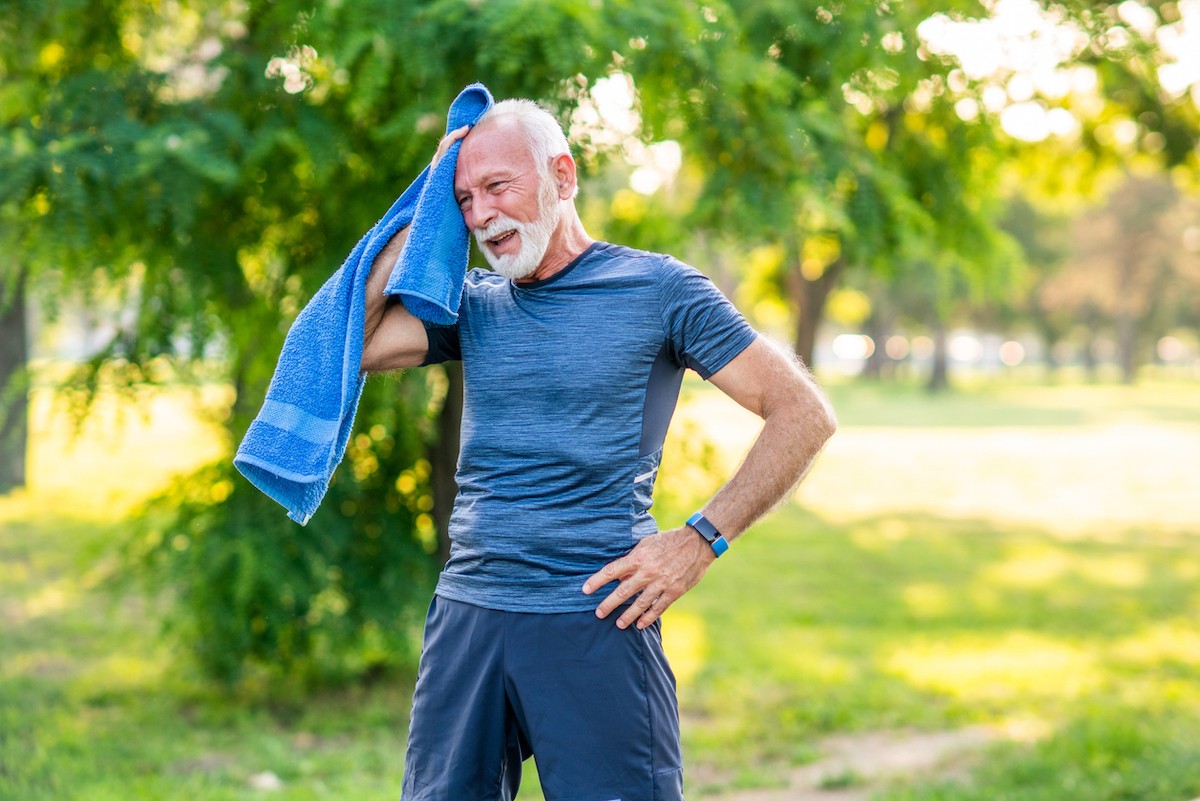Doing This Every Morning Can Sharpen Your Memory, Experts Say

What’s good for your heart is good for your brain: Starting your day with exercise can make a significant impact on reducing the risk of cognitive decline, experts say. “Research has shown that people who take regular exercise may be up to 20% less likely to develop dementia than those who don’t take regular exercise,” says the Alzheimer’s Society. “This came from some analysis that combined the results of 58 studies into exercise and dementia. It has been shown that going from being inactive to doing some amount of exercise has the biggest impact. Sustaining physical activity throughout midlife also seems to have the best effect on reducing dementia risk.” Here’s what you need to know about how to sharpen your memory and keep your brain healthy.
RELATED: This Easy Morning Habit Boosts Energy All Day.
Neurons Communicate

Physical activity encourages neurons to communicate better, making exercise even more beneficial for brain health. “They are really where the magic happens when it comes to cognition,” Kaitlin Casaletto, an assistant professor of neuropsychology at the University of California, San Francisco Memory and Aging Center, tells AARP. “It seems it is never too late to start.”
Any Movement Works

Starting your day with any movement is beneficial. “Right now, research supports any type of movement, from walking and dance to tai chi and yoga,” Casaletto says. “But it’s possible that not everyone benefits the same.”
Moderate Exercise

You don’t have to go crazy at the gym to get benefits from exercise—just 150 minutes of brisk movement a week, like walking, can impact brain health. “Many studies have suggested that the parts of the brain that control thinking and memory are larger in volume in people who exercise than in people who don’t,” says Harvard Health. “One finding is that engaging in a program of regular exercise of moderate intensity over six months or a year is associated with an increase in the volume of selected brain regions.”
Strength Training and Brain Health

Strength training has both mental and physical benefits, experts say. “One of the most important breakthroughs in research around the benefit of weight training concerns the immune system,” says Austin Perlmutter MD, via Psychology Today. “Specifically, it relates to molecules called myokines, which are tiny signals produced by muscles that can enter and impact the brain. While the research around myokines is still pretty new, the overall idea is simple: resistance training alters levels of a host of chemicals produced by the muscles that may have beneficial effects on the brain.”
RELATED: Over 50? It’s Time to Rethink Your Morning Routine.
Aerobic Exercise and Memory

Starting your day with aerobic exercise is another great way to protect brain health. “With regular exercise, you can make a major difference in terms of how your body is functioning and, as a result, how your brain is functioning. One of the key places these changes take place is in the hippocampus, which is a very important area of the brain for memory,” neuropsychologist Aaron Bonner-Jackson, PhD, tells the Cleveland Clinic. “In studies of the brain, they find that people who get recommended amounts of exercise see some improvement in their hippocampus, which helps improve learning and memory.”
It’s Never Too Late To Start

You’re never too old to start protecting your memory and brain health. “Even that person that thinks that they have been the most sedentary person or who maybe doesn’t enjoy exercise, there are still health benefits for your body and your brain by starting an exercise routine,” Dr. Ross says. “Anybody at any age can get the benefits from adding exercise into their life.”